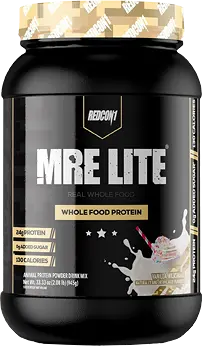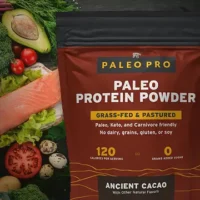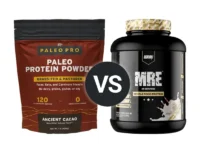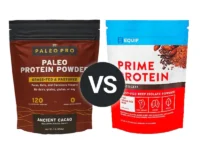Knowledge BaseYou're Questions Answered
Can beef protein powder cause constipation?
Beef protein powder is a dietary supplement derived from hydrolyzed beef protein isolates, often from lean cuts of beef or collagen-rich parts. It provides a high-quality source of protein and is often used as an alternative to dairy or plant-based protein powders. While beef protein powder itself is not inherently constipating, certain factors associated with its consumption can contribute to constipation in some individuals. Below, we explore the potential causes and considerations regarding constipation and beef protein powder.
Potential Causes of Constipation from Beef Protein Powder
1. Low Fiber Content
Beef protein powder, like most protein powders, is low in dietary fiber. Fiber is essential for promoting regular bowel movements and preventing constipation. If an individual's diet is lacking in fiber, adding a low-fiber supplement like beef protein powder without compensating with other fiber-rich foods can lead to constipation1.
2. Dehydration
High protein intake can increase the body's need for water, as the kidneys require more water to process and excrete the byproducts of protein metabolism. Inadequate fluid intake can lead to dehydration, which in turn can cause or exacerbate constipation2. It is important to maintain adequate hydration when consuming high amounts of protein, including from supplements like beef protein powder.
3. Lack of Dietary Variety
Focusing heavily on protein supplements like beef protein powder while neglecting a balanced diet that includes fruits, vegetables, and whole grains can result in insufficient intake of essential nutrients, including fiber. A varied diet is crucial for overall digestive health and regular bowel movements3.
4. Individual Sensitivities
Some individuals may experience digestive discomfort, including constipation, when consuming protein powders due to individual sensitivities or intolerances. While beef protein powder is generally well-tolerated, individual reactions can vary, and some people may find it harder to digest than others4.
Recommendations to Prevent Constipation
1. Increase Fiber Intake
To counteract the low fiber content of beef protein powder, include plenty of fiber-rich foods in your diet. These can include fruits, vegetables, whole grains, legumes, nuts, and seeds. A balanced diet with adequate fiber helps promote regular bowel movements and prevent constipation.
2. Stay Hydrated
Ensure that you drink plenty of water throughout the day, especially when consuming protein supplements. Adequate hydration helps maintain digestive health and prevents dehydration-related constipation.
3. Balanced Diet
Incorporate a variety of nutrient-dense foods in your diet, alongside protein supplements, to ensure you're getting all the necessary vitamins, minerals, and fiber. This approach supports overall digestive health and reduces the risk of constipation.
4. Monitor Individual Responses
Pay attention to how your body responds to beef protein powder and adjust your diet accordingly. If you experience persistent digestive issues, consider consulting with a healthcare professional or nutritionist for personalized advice.
- Slavin, J. L. (2013). Fiber and prebiotics: mechanisms and health benefits. Nutrients, 5(4), 1417-1435.
- Gibney, M. J., Lanham-New, S. A., Cassidy, A., & Vorster, H. H. (2009). Introduction to human nutrition. John Wiley & Sons.
- Institute of Medicine (US) Panel on Macronutrients. (2005). Dietary Reference Intakes for Energy, Carbohydrate, Fiber, Fat, Fatty Acids, Cholesterol, Protein, and Amino Acids. National Academies Press (US).
- Marcason, W. (2010). What is the effect of whey protein on cholesterol and lipoproteins? Journal of the American Dietetic Association, 110(12), 2021.
Related Questions
Related Reviews

Your Answer
We are a participant in the Amazon Services LLC Associates Program, an affiliate advertising program designed to provide a means for us to earn fees by linking to Amazon.com and affiliated sites.






